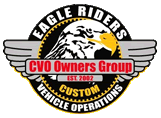OK, I know I said I was finished with this thread, but I just couldn't resist this. It appears that all the hype about nitrogen in tires has led Shell Oil to decide that the word nitrogen has magical properties in terms of selling gasoline. Thus we have the new "Nitrogen Enriched Gasoline" being heavily promoted at the Shell station near you. I have to take it back, this stuff obviously
is magical.
------------------------------------
Shell Launches New Nitrogen Enriched Gasolines 02/03/2009
Introducing a new molecule designed to seek and destroy engine gunk in both conventional and modern engines.
Houston – Today at Shell stations across the U.S., consumers will fill-up with a new product at the pumps. Shell is introducing the all-new Nitrogen Enriched Gasolines, containing a unique, patented cleaning system designed to seek and destroy engine “gunk” (carbon deposits) in all three grades of gasoline. The new Nitrogen Enriched cleaning system protects and cleans up gunky build-up on intake valves and fuel injectors left by lower quality gasolines.
Nitrogen is a key element of the active cleaning molecule in the new fuel, making it significantly more stable at higher temperatures common in modern engines, such as direct fuel-injection gasoline engines. The increased stability ensures that the molecule can work under much tougher engine conditions by resisting thermal breakdown better than conventional cleaning additives.
“At Shell, our ‘Passionate Experts’ are dedicated to helping motorists get the most out of every drop of gasoline,” said Jens Mueller-Belau, Fuels Portfolio and Category Manager North America, Shell Retail.. “With Nitrogen Enriched Gasolines, our scientists have increased the effectiveness of our cleaning additive, offering consumers our most advanced technology ever.”
In addition to developing the new fuel with the consumer in mind, Shell worked very closely with automotive manufacturers to gain insight into current and future engine technologies. These insights along with fuels technology leadership and a strong research and development program help Shell continually improve its products.
Nitrogen Enriched Gasolines were tested in laboratories, independent testing facilities, and on the road, accumulating more than a half-million miles in various vehicles and engines—including conventional, turbo-charged, and direct fuel-injection gasoline engines, hybrids, newer vehicles with low mileage, and older vehicles with high mileage.
Shell scientists also used innovative testing technologies such as dual fuel engines to conduct head-to-head comparisons with other lower quality gasolines. In these tests, split engines simultaneously run on different types of gasoline in order to collect data under the exact same conditions. The results of these head-to-head comparisons proved that the Shell Nitrogen Enriched Gasolines are more effective than lower quality gasolines in protecting against the build-up of harmful engine gunk.
“In today’s tough economy, American drivers are concerned about protecting their vehicle since it’s one of their largest investments,” said Mueller-Belau. “We want to help protect that investment. That’s why we want them to educate consumers that there is a difference in the gasoline they choose. Using lower quality gasolines can result in gunky build-up on critical engine parts, negatively impacting engine performance. Shell gasolines help drivers say ‘No’ to gunk.”
The Nitrogen Enriched formula is proven to prevent build-up of gunk more effectively than gasolines containing only the minimum amount of cleaning agents as required by the EPA.
The new cleaning system is certified to meet the TOP TIER Detergent Gasoline Standard – voluntary standards designated by some of the world’s top automakers (Audi, BMW, GM, Honda, Toyota, Volkswagen) to try to raise the bar on fuel quality beyond minimum government criteria. Industry research has proven that a clean engine results in better fuel efficiency, reduced emissions, and overall optimal vehicle performance.
In addition, Shell V-Power® premium gasoline provides maximum protection with the highest concentration of the Nitrogen Enriched cleaning system and more than five times the minimum amount of cleaning agents required by federal government standards. It seeks and destroys engine gunk even faster than regular Shell gasoline, providing maximum protection to help vehicles maintain peak performance.
Shell is supporting the launch of Nitrogen Enriched Gasolines with a national marketing campaign, including national TV, radio and online advertising, as well as point-of-purchase signage at Shell-branded stations nationwide. The new campaign builds-on the current “Passionate Experts” platform, focusing on the company’s commitment to fuel quality and passion for developing innovative new products.
“At Shell, we believe it’s important to educate consumers that all gasolines are not the same—high quality gasoline can make a difference in a vehicle,” said Karen Wildman, Shell U.S. brand and communications manager. “We’re dedicated to continuous product improvement and innovation, and to helping consumers get the most out of every drop.”
For additional information on Shell Nitrogen Enriched Gasolines, visit
www.passionate-experts.shell.com.
----------------------
OK, now I really am finished with this thread. I promise. Well, unless something else pops up like nitrogen enriched breakfast cereals.
Jerry
 Author
Topic: nitrogen in tires (Read 10734 times)
Author
Topic: nitrogen in tires (Read 10734 times)

